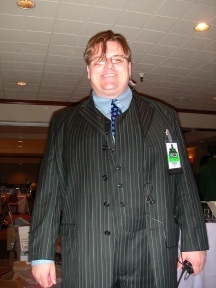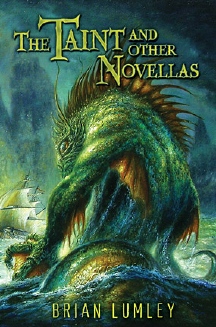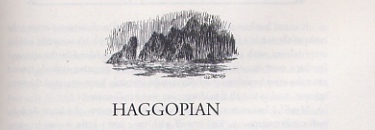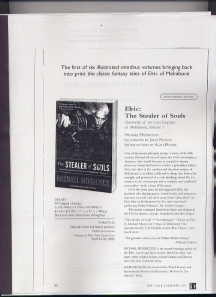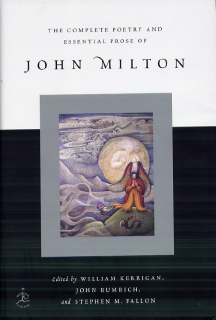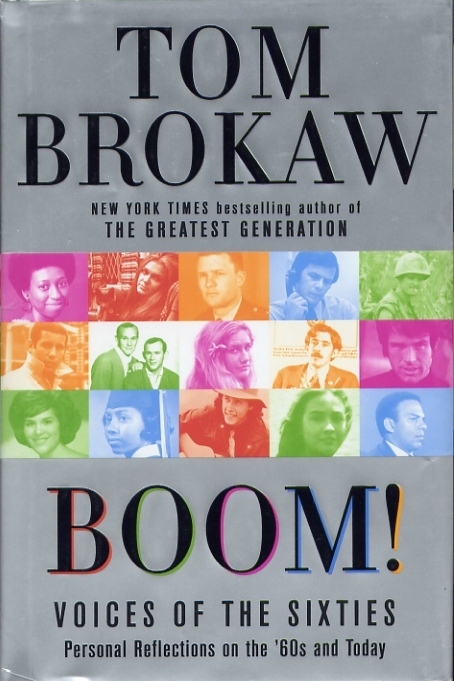|
|
|
|
This Just In...News
From The Agony Column
|
| |
|
11-23-07: 'Haggopian and Other Stories' by Brian Lumley
; Agony Column Podcast News Report : A Conversation with Bookseller Maryelizabeth
Hart
|
Forty Years of Mythos
|
|
That
looks like a lot more than a taint to me!
|
Well, for me almost. I
think it's been thirty-eight years since I first stumbled on the "burning skull" Lancer edition of H. P. Lovecraft
in a liquor store in Covina, California. And the very things that interested
in me in Lovecraft's fiction then draw me to it and it's ilk now. As
a fiction writer, Lovecraft employed some pretty sophisticated narrative
techniques. "The Call of Cthulhu" has a very modern-seeming "documentary-like" feel,
with its collection of news clippings and narrative. And while Lovecraft's
prose was often over-the-top, he was adept at letting the readers draw
their own conclusions. So I've stuck with the Lovecraftian authors I
found back then, by and large, because they still appeal to me today.
For Brian Lumley, it in fact has been forty years of Lovecraftiana. Back
in 1967, Lumley, then a soldier serving in Berlin with the military police,
decided he wanted to get his own science-fiction horror published. He studied
the markets and found that one August Derleth was The Man. Lumley was a
smart fellow, so he sat down, penned stories that suited the market and
sold them. Over the years, I encountered them in a variety of settings.
I have the Arkham House collection, 'The Horror At Oakdeene' and loose
copies of the wonderful Weirdbook, a large format sort-of magazine published
by Paul Ganley in the 1970's and 1980's. I remember buying Weirdbook from
an odd store in San Pedro. They didn't have a lot of SF or horror and they
did have titles that they clearly didn't know what to do with. The same
store sold me Weirdbook and a Scream/Press copy of Dennis Etchison's 'The
Blood Kiss'. Linoleum floors, florescent lights. A jumbled, almost junky
feel. It was like stumbling into a bookstore from a Lovecraft story to
find Lovecraftian fiction.
All this leading up to 'Haggopian and Other Stories: Best Mythos Tales,
Volume Two' (Subterranean Press; May 2008 ; $40), which follows on from
'The Taint and Other Novellas: Best Mythos Tales, Volume One' (Subterranean
Press; October 31, 2007; $40). For all that Lovecraft innovated and created,
perhaps his greatest creation was his willingness, indeed his encouragement
of other writers to expand his fictional universe. As Lumley points out
in his introduction to the second volume, August Derleth played a big part
in this expansion of Lovecraft's cosmology. And as readers, we can be thankful
he encouraged a young British soldier to keep on writing.
The result is that some forty years later, we have not one, but two lovely
books chock full of ichor, slime, and writhing black voids from the esteemed
Lumley. Lumley's stuff is not exactly your typical mythos fiction. He has
a sort of brash and often gruff voice, less that of a scholar and more
of an old soldier, come home with tales, tall and otherwise. You can be
sure of one thing. Lumley wants to creep you out and entertain you.
That is certainly accomplished. The title story, "Dagon's Bell", "Cement
Surroundings" offer the "comfort reading" feel of mythos
stories with Lumley's smirkingly evil twist. Lumley also writes a series
of high-fantasy stories that combine disparate elements in Lovecraft's
work perhaps more effectively than Lovecraft himself did. "Curse of
the Golden Guardians" benefits from a combination of Robert E. Howard-style
sword-and-sorcery shtick with the monsters from Lovecraft's pantheon. You'll
also find a few Titus Crow stories between the two volumes, "Name
and Number" from 'Haggopian' being one of my favorites.
|
|
| One
of many B&W illustrations in the latest series entry. |
Now Lumley is an acquired taste. But it's pretty damn easy to acquire
that taste with Subterranean's presentation. Bob Eggleton has been
working with
Lumley on projects for Tor and for SP, and he's at it once again for these
two volumes. There are lots of wonderful little illustrative grace notes
inside the books and stunning cover images. It's a great partnership that
makes reading the work even more fun. These stories have been reprinted
all over the place, but it's nice to have them all in a one-stop shopping
format. This is the kind of book that just feels right to own. It's unpretentious,
entertaining, and really quite a bit smarter and craftier than it lets
on. Let Brian Lumley be our evil uncle and tell you the sort of stories
your parents would rather you not hear. Shelf space is always at a premium;
these books earn their keep. Forty years from now, the world will be quite
different. For all we know, R'lyeh may rise in the interim. New authors
will be adding the body of work; and Lumley himself is probably not done
with it yet. That's a lot of mythos.
|
Agony Column Podcast News Report : A Conversation with Bookseller Maryelizabeth
Hart : "No, it's not paranormal romance!"
Today's Agony Column
Podcast News Report is a conversation with bookseller Maryelizabeth
Hart of Mysterious
Galaxy in San Diego, California. We talked
about their history, their relationships with publishers big and small;
the usual topics. One of the three owners of Mysterious Galaxy is Jeff
Marriot, author of 'The
Slab'. Then I put my foot in it so to speak, when
I asked the usual question about forthcoming titles. I find it odd that
booksellers
tend to be reluctant when it comes to pitching their faves, but Maryelizabeth
did give me some insight into why that might be. Happily, when she talked
about what she was reading, I described it as "paranormal romance",
which elicited a delightfully unexpected reaction. You
can hear the results on this MP3, and know I'll be sure to try and
keep pushing bookseller buttons.
|
| |
|
11-22-07: 'Elric: The Stealer of Souls' by Michael Moorcock
; Agony Column Podcast News Report : A Conversation With Jeremy Lassen
of Nightshade Books
|
A Young Man's Primer for Survival in an Unfriendly World
|
|
An
exciting photocopy ARC. I love this. Uh huh.
|
There comes a time when a teenage boy is susceptible. Vulnerable to the
perils Evil Literature, the whispering drone of Genre Fiction. When Lovecraft
Calls. When Moorcock answers.
In a recent conversation with a bookseller – I'm pretty sure it was
Jack Rems of Dark Carnival – we talked about the importance of keeping
the classics in print, the better to imprint new generations of readers.
As great as today's authors are, the classics are thusly described for
a reason. 'Dune', 'Childhood's End', 'The Call of Cthulhu', 'Something
Wicked This Way Comes', 'Who Goes There?' – these are among the books
that corrupt young minds, that shape them into lean, mean reading machines.
Lovecraft asks the cosmic questions; and Michael Moorcock provides the
passive-aggressive answers. I can't imagine there are many male science
fiction fans out there who at a certain tender age managed to avoid encountering
Elric of Melniboné. God, if you did, how lucky are you? I mean,
sheesh, you get to encounter 'Elric: The Stealer of Souls' (Del Rey / Random
House ; 2008 ; $14.95) for the first time in a pretty damn nice trade paperback
edition with "illustrations throughout" by John Picacio. I'm
not sure how they're defining "throughout" – the photocopied
ARC I have has a few, but, heck that's a lot more than I encountered in
the cheesy 1970's paperbacks that I read.
Here's why Elric is so appealing. He's an albino wimp, pretty much powerless,
but for his sword – Stormbringer – which takes the souls of
those whom it kills and feeds their energy to poor pathetic Elric, transforming
him into a functioning human. Now that's a useful technology. Moorock writes
these books at eleven, so to speak. They're beyond lurid; lurid is as pale
as Elric compared to the hothouse fever that Moorcock generates, pumping
up everything to a fully saturated frenzy. Monsters galore, voluptuous
maidens, the gods themselves slipping between the dimensions; Moorcock
did it in a manner that will turn just about any teenage boy into an avid
reader. You've just got to get them hooked early. Reading is addictive,
it's a drug, so make use of that fact and put these dangerous drugs in
the hands of innocent children so you can hook impressionable young minds
early.
All right. Done with the rewind, let's take a quick look at what you've
got here. Fifteen bucks, trade paperback, omnibus editions; the first volume
contains 'The Stealer of Souls' and 'Stormbringer', which really makes
these a pretty decent deal. If you pay twice the cost of an MMPB, you get
the contents of two MMPB's in one book. You get the bonus of Picacio's
illustrations; you know they're impeccable. You get a gallery of old Elric
book and magazine covers and some assorted letters. Sounds like a deal
to me.
It's up to you to become the dealer. This is how you hook the next generation.
Keep the classics in print. Do 'em up decently, 'cos they've got to compete
with movies, Internet porn and video games. Put them front and center;
when those minds are susceptible, hook 'em. Don’t expect them to
thank you; we are after all, talking about teenage boys.
|
Agony Column Podcast News Report : A Conversation With Jeremy Lassen of
Night Shade Books : Taking on NY
|
Jeremy
Lassen of Night Shade Books. |
 |
Last night, I had a
conversation with Jeremy Lassen of Night Shade Books about their journey
from specialty press to competition with the NY giants.
You
can hear the MP3 of our conversation here. If you're interested in
the nuts-and-bolts of publishing books, then this is the place to start;
we talked about finding distribution and a printer, and I have to say I
was rather surprised by what I learned. When we read so much doom and gloom
about the state of book publishing, with yet another recent article about
how few people read, etc etc out earlier this week, it's bracing to chat
with someone who started up from nothing and is bringing back the midlist,
taking on NY and making a living doing so. I don’t care what sort
of cheesy e-reader gets shoved in our faces. The people who make these
things seem without clue as to what makes books appealing to readers. The
fact is, it's a technology that has survived for more than half a millennium.
It's actually doing better than democracy.
|
| |
| |
|
11-21-07: Michael Flynn Visits 'Eifelheim' : Agony Column
Podcast News Report : A Conversation with Molly Gloss from SF in SF
|
Cost-Per-Page Calculations
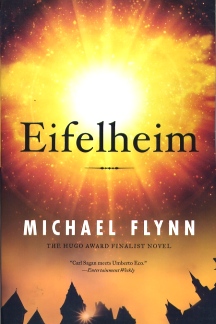 |
|
| Small
tet, big reading reward. |
Had I been able to get my hands on a hardcover version of Michael
Flynn's 'Eifelheim' (Tor / Tom Doherty Associates ; November 13, 2007 ; $14.95),
I would have been all over it even before it ended up as a Hugo Finalist.
It's just the kind of book I love, a genre fiction novel that sidesteps
the genre and winds up in a no-man's land of what can only be called
great writing. Two stories intertwine in this intricately put-together
novel. In the present, Tom Schwoerin and Sharon Nagy puzzle over the
disappearance of a small town in the depths of history. Tom's a historian
and he's got a theory about settlement and city distribution, which suggests
that even though the town of Eifelheim disappeared in the mid-fourteenth
century, it should have been resettled. It wasn't, and that bugs him.
Sharon's working on some thorny theoretical physics that are bugging
her.
Back in 1348, in the township of Oberhochwald, Father Dietrich has his
own share of problems. The plague is beginning to decimate Europe. The
people are scared. Terrible, inexplicable deaths – not from the plague,
but something stranger – make things worse. Something has fallen
to earth in the forest outside the town. This being a book from Tor, you
can be it's not a tree, but rather, an alien spacecraft. History is about
to be unmade.
Tom, Sharon and Dietrich's paths will converge on a truth that is stranger
than the tales told by the old women of Oberhochwald, which will be renamed
Teufelheim, a name corrupted into Eifelheim. As time corrupts everything,
except the value of a well-written novel.
And 'Eifelheim' is certainly well-written, with a slab of actual physics,
detailed insight into historical research and lots of actual history as
well. It's the sort of novel that would appeal to readers who like historical
fiction, magic realism, science fiction, fantasy, horror, and even literary
fiction. In other words, readers.
With magnifying glasses.
Open this delightful novel up and you'll have an abject, object lesson
in cost-per-page calculations staring, no squinting you in the eye. That's
because even though it's been released in a trade paperback format, Tor
has seen fit to print this novel in teeny-tiny type that almost immediately
makes you want to put the book back on the shelves. After all, we have
a lot of great books out there, and many of them are more readable. If
you’re going to spend your time reading, you don’t want to
have to screw-up your eyes out the magnifying goggles. You wear those goggles
at the taqueria and I guarantee the other patrons will stare. But what
is your choice when the type is so small.
Now, Tor has obviously been too much time with the cost-benefits folks
in their accounting department. After all, they were the ones to split
a Charlie Stross novel. Probably made a fair coin on it, since even I recommended
the book. That said, here's the calculation. If we make the type this large,
then the book has this many pages, and we have to sell it at this price
point; if we shrink the font, we have fewer pages, the same sell-through
and we actually make a (better) profit. I'm sure they’ve got the
numbers on their side. But the fact of the matter is that they certainly
don’t have this reader on their side. I understand some of the biz
of books. And I care about it, I really do. I want publishers to go on
publishing books. Yes, I've seen the latest ebooks, and they still underwhelm
me. And get this, even though I have an iPod and use it listen to music,
I still prefer buying CDs to buying online. I want the thing to hold in
my sweaty hands. The point being that to the customers, the generous formats
do still matter. I'm the die-hard, the guy you want to be willing, no happy
to fork out my hardly-earned dollars for an afternoon spent in a plague-threatened,
alien-visited town in the fourteenth century. You don't want me looking
at the page and thinking, "Holy shit, I'm old!" You want me thinking, "That
looks like a damn fine book, I'm buying it now." I don’t know
how many people are making that calculation. But I am. And I calculate
that Tor has sort of shot themselves in the foot here, and done a disservice
to an otherwise fine piece of writing, a book that to my mind could have
slipped into the trade paperback foo-foo fiction shelves and done well
by itself. Sit it next to the latest Chabon title, 'Gentlemen of the Road',
they have simpatico covers, and themes, sort of. Then open up the Chabon
and note how the layout invites you to read.
Now, 'Eifelheim' certainly invites the reader along. It's a wonderful addition
to your library and the intended reading experience will be Worth Your
Valuable Time. But damn. Those embarrassing goggles, or the skinny little
glasses you buy at the drugstore for $13.95? Well, that's a cost right
there, a calculation that is easy to forget. It can disappear into the
winds of history more easily than a fourteenth-century German hamlet visited
by critters from another world.
|
Agony Column Podcast News Report : A Conversation with Molly Gloss from
SF in SF : Strange Lights in the Sky
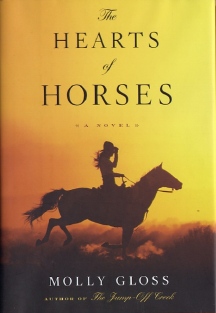
|
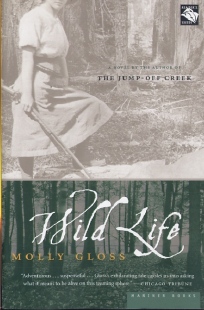 |
| The
latest from Molly Gloss, left; an earlier novel with Fortean
themes. |
If you haven't already
done so, make sure you listen
to the MP3 of Molly Gloss reading her story "Lambing Season" at last week's SF in SF,
before you listen
to the MP3 of my interview with her after the event. Yes,
she talks about her latest book, 'The Hearts of Horses', and 'Wild Life',
a book about a woman who is lost in the Pacific Northwest forest and finds
herself living with a group of large, hairy giants. Calling
Loren Coleman! Gloss is a superb writer, especially for those of us who like our Fortean
elements of the fantastic to emerge from a familiar reality so closely examined
that it begins to reveal a wealth of new details. She also talks about "Lambing
Season", however, in a manner that to my minds would spoil the flow
of this gorgeous story. So, listen up, in order, and enjoy. We've just
met a fine new writer by the name of Molly Gloss, who writes fiction
in a most
specific genre: Molly Gloss Fiction. Look at it that way, and there are
lots of genres to choose from.
|
| |
|
11-20-07: 'The Complete Poetry and Essential Prose of John
Milton' ; Agony Column Podcast News Report : Molly Gloss Reading at SF in SF
|
A Book Brick Foundation
|
|
Reading
Paradise regained.
|
How can I possibly resist?
'The Complete Poetry and Essential Prose of John Milton' (Modern Library
/ Random House ; November 13, 2007 ; $55)
edited by William Kerrigan, John Rumrich and Stephen M. Fallon, has a
price tag to match its size. But it's worth it, and it's especially worth
it to those might be inclined to read fantasy, science fiction, poetry,
philosophy, high-falutin' litrachur (it does not falute any higher than
this) – in short, readers. Here's a book brick that can easily
serve as the foundation not just for your book collection, but hell,
for much of modern literature itself.
Before I talk about the specifics of this edition of Milton, inspired by
the book, I need to talk about why Milton is so essential to me. And as
you might expect, it's all about Paradise Lost, which allowed me to link
up my science fiction and fantasy reading background with the deep history
of writing itself. Paradise Lost is one of those books that's actually
best read first in a college course on literature. A decent instructor
will help you discern the disparate elements and clarify your vision of
the whole.
And what a whole! Read Paradise Lost and the whole of 20th century fantasy
falls at your feet. A dream journey through a strange land, a flawed hero
of evil, a vision of the cosmos, a vision of moral order; it's all here
in unmistakably gorgeous language. Writing in blank verse, the blind man,
four times bereaved, having lost two wives and their children, struggled
through the world of human existence and the world beyond human existence,
to create visions of awe and wonder that are in every sense iconic. Paradise
Lost is a rip-roaring adventure, full of battles and betrayals while at
the same time being a subtle meditation of the perils and powers of existence.
The bottom line is that it is a damn good read, even some 330 years after
it was first published in 1667.
But all that is undisputed and I'm sure all my readers understand it well.
So what is it about this book brick that makes it better than the dog-eared
trade paperback versions from your college years lurking somewhere on your
shelves? Annotation. It's one thing to immerse yourself in Milton, it's
another entirely to do so in the presence of intelligent editors like William
Kerrigan, John Rumrich and Stephen M. Fallon. The carefully written introduction
to Paradise Lost in this edition is pretty damn gripping reading, considering
that it's scholarly commentary on one of the most commented-upon works
ever written. If you want to buy this book for Paradise Lost alone, then
you've made affine investment.
But there's so much more; all of this poetry, from Psalm 115, by a fifteen
year-old Milton to Samson Agonistes, which may actually pre-date Paradise
Lost. There are generous slabs of Milton's best prose, including selections
(ie, 200-plus pages!) from the still chillingly relevant Christian Doctrine.
Consider this: "The process of restoring religion to something of
its pure, original state, after it had been defiled with impurities for
more than thirteen hundred years, dates from the beginning of the last
century....I focused my studies primarily upon Christian doctrine, because
nothing else can so effectively wipe away those two repulsive afflictions,
tyranny and superstition, from human life and from the human mind..."
Milton is of course reason enough to shell out some sixty bucks. But Kerrigan,
Rumrich and Fallon have assembled a suitably epic collection of introductions,
glosses and text notes of a quality that matches the text they illuminate.
There's nothing like great material to inspire exciting scholarly text,
and make no mistake about it, if you love reading, then you’re quite
likely to find the scholarly essays here very exciting. Milton is behind
so much of what and indeed think today that the reading well-written essays
about his work is bound to create synergistic sparks in any mind.
The book itself is really very nice. The print is nicely sized for easy
reading and there are a few illustrations in B&W. Color plates would
have been nicer, but probably added another $25 to the cover price and
really, illustrations are rather superfluous when you're talking about
Milton. Even if they're by Yeats. No, all you really need a decent light,
a comfortable chair and a bit of time to focus an lose yourself in the
world before the world.
|
Agony Column Podcast News Report : Molly Gloss Reading at SF in SF : "Lambing Season"
If there were any
justice in this world, then the SF in SF events
would be sold out, 25-bucks a pop affairs. Last week's was no exception,
featuring
Molly Gloss, Karen Joy Fowler, and Terry Bisson, as
well as the usual crew from Tachyon
PUblications,
Jacob and Rina Weisman, and Borderlands
Books. Attending as well were
Carter Scholz and Michael Blumlein. Originally, my first podcast from
the event was to be an interview with Molly Gloss. But, like moderator
Terry Bisson, I've decided to offer her reading first and without comment.
The story is titled "Lambing Season"; here's
a link to the MP3 reading. This is a superb story that to me seems
destined to become a classic.
|
| |
|
11-19-07: Tom Brokaw at the Rio Theater
|
'Boom!'
Today's podcast
is a recording of Tom Brokaw's performance at the Rio Theater, on
November 8, taken direct from the mixer. And it is
a performance,
not simply a lecture. Brokaw has after all spent more time in front of
a camera than most of humanity, more time than most actors. But he's
not an actor; he's a storyteller. What struck me was that this story
was tailored for Santa Cruz. If he did this for all his stops, then well – that's
a lot of work. You can hear the results here in MP3 and here in RealAudio.
Boom.
|
| |
|
|

